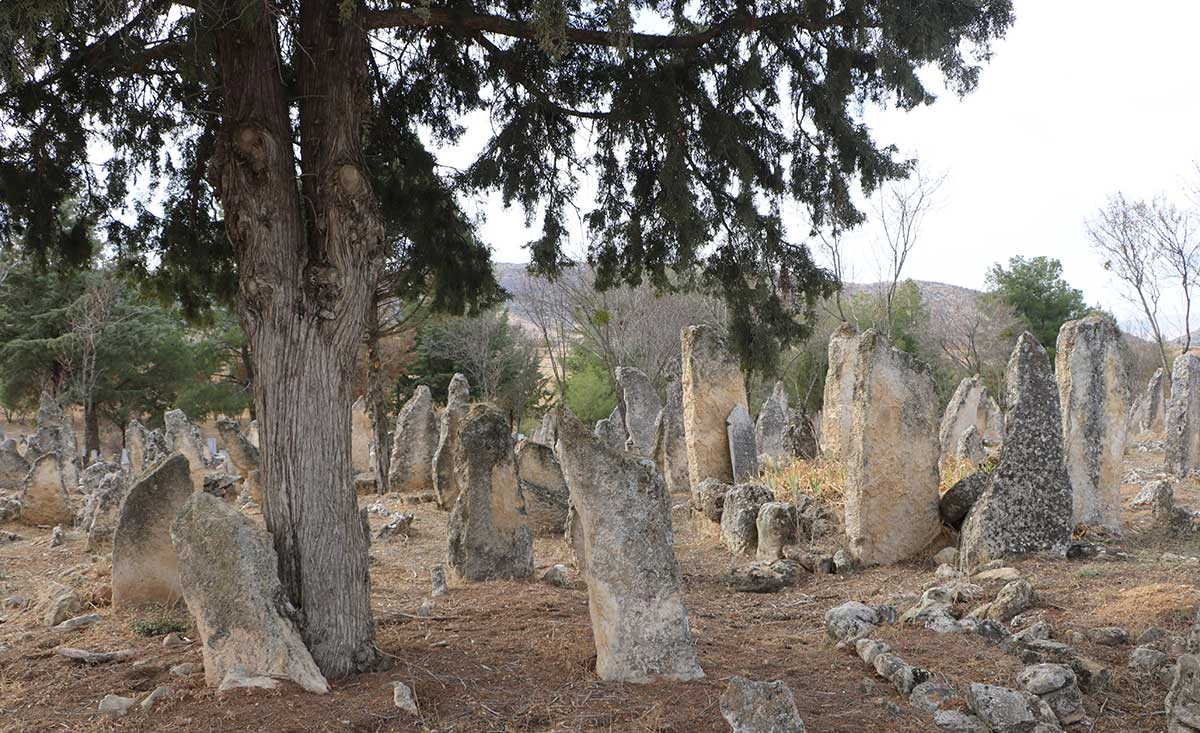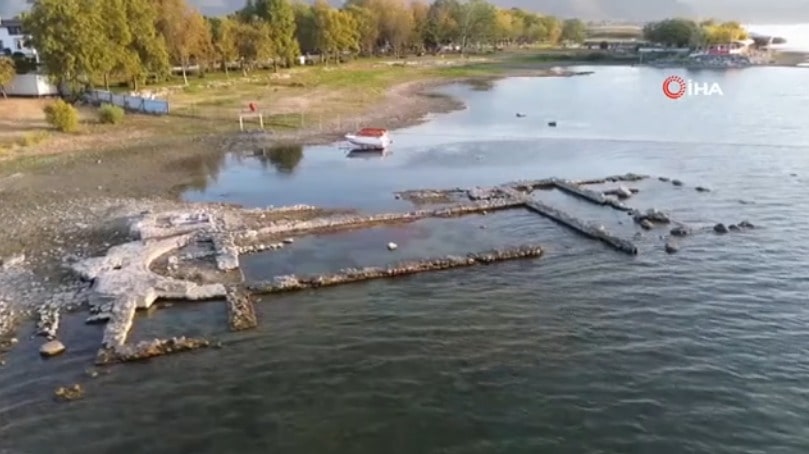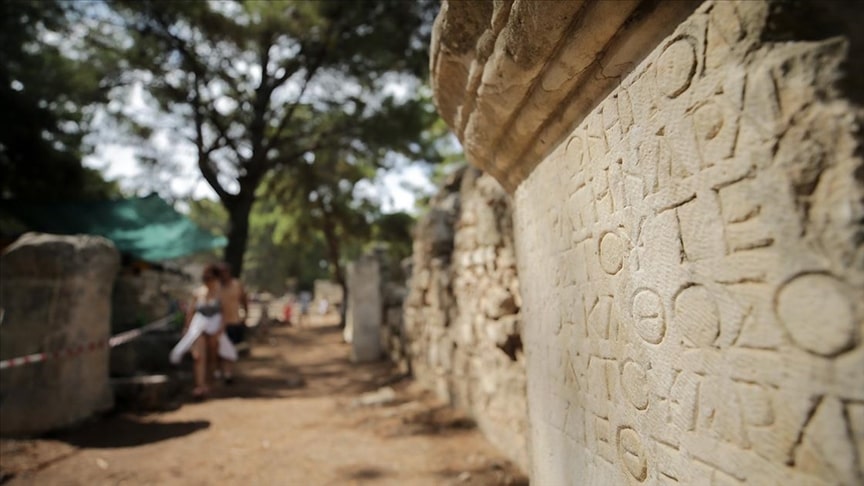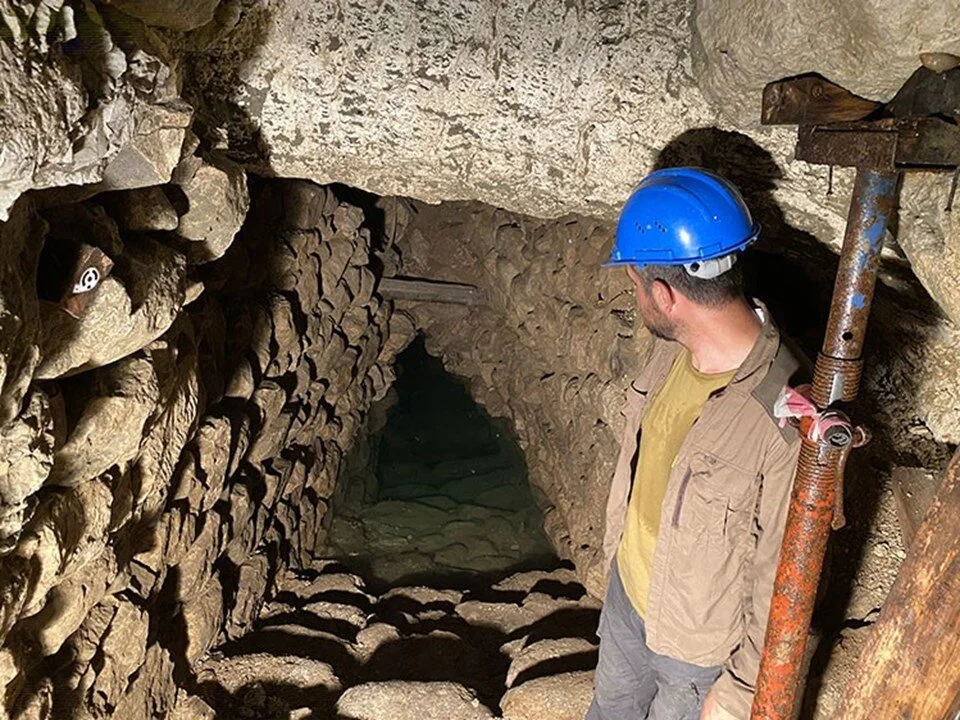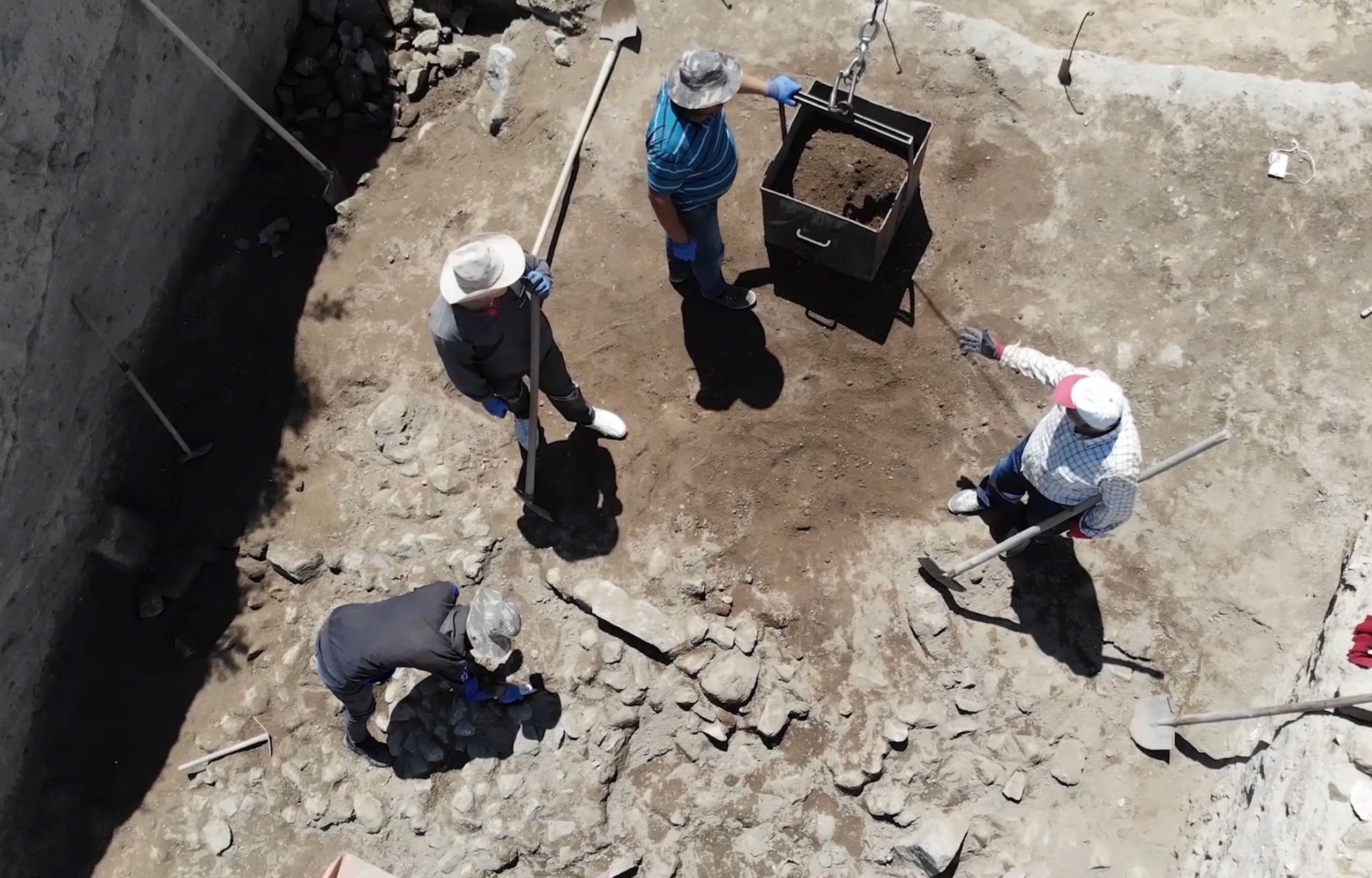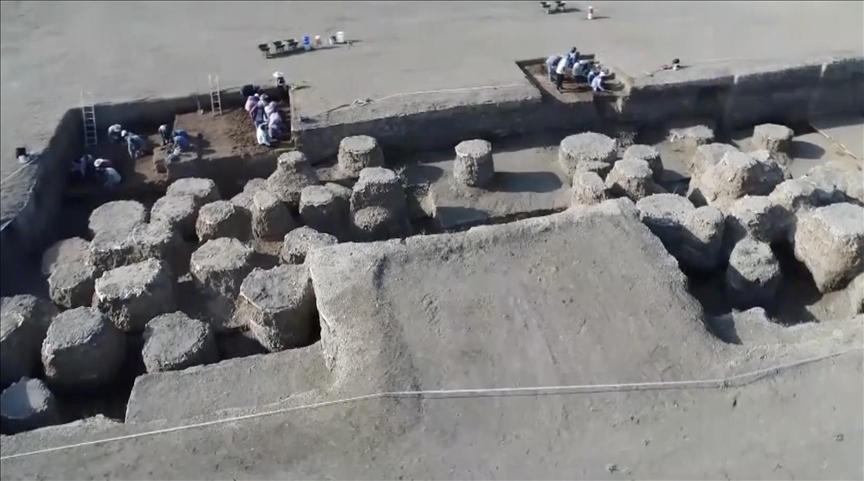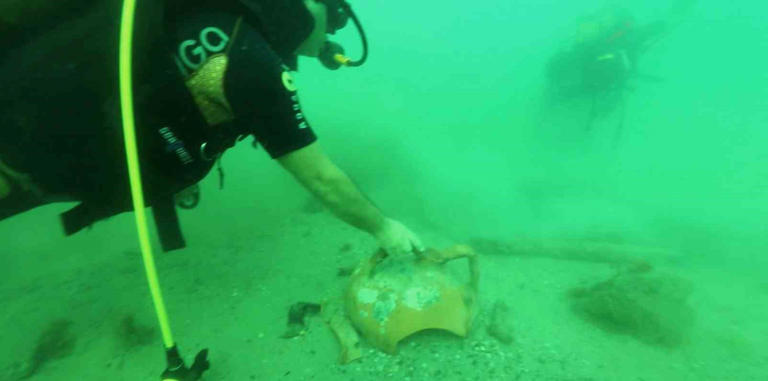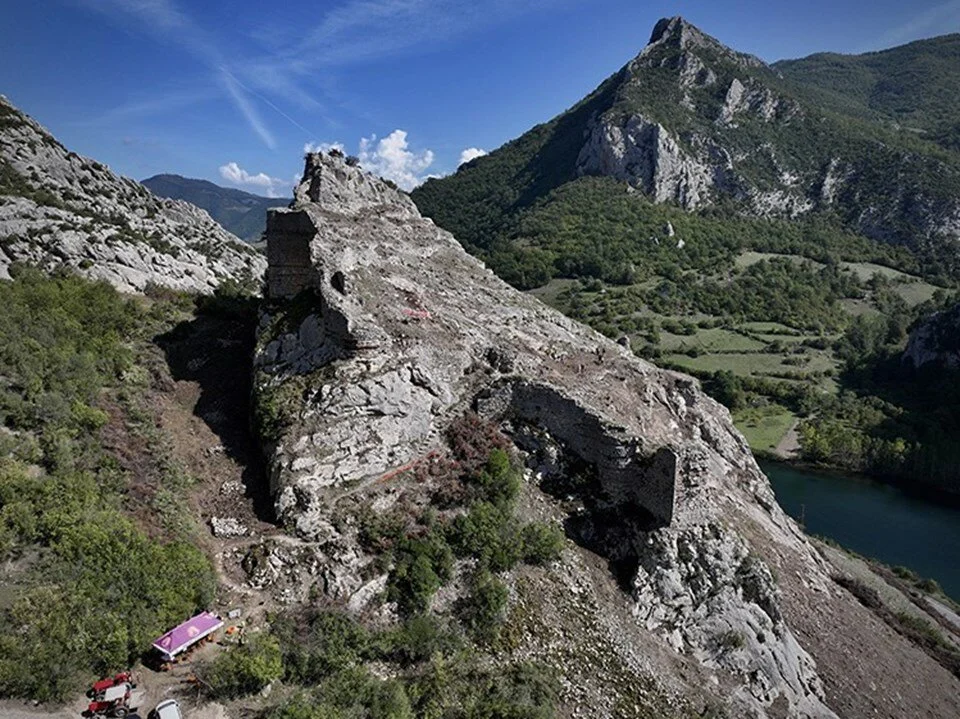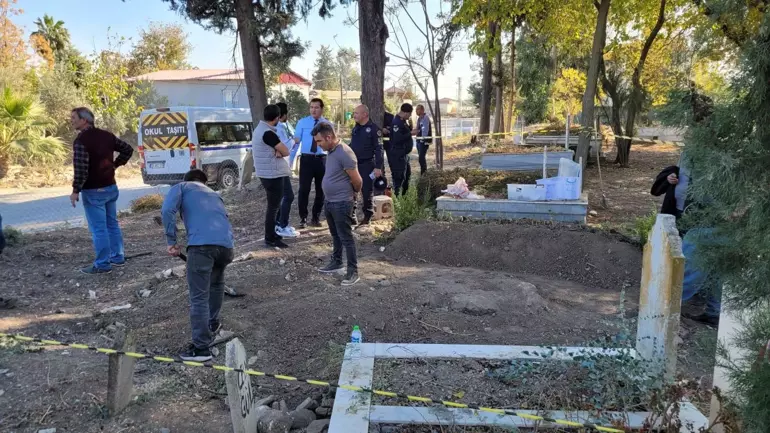In the shipwreck known as the ‘oldest known shipwreck’ in the world, located in Kumluca from the Middle Bronze Age, personal belongings of the sailors were found along with copper ingots.
Dr. Hakan Öniz, the excavation director of the Middle Bronze Age Shipwreck in Kumluca, stated that they have been conducting research for 3 years at the Middle Bronze Age Shipwreck, and this year’s excavation lasted for two months.
Öniz explained that the excavations were carried out with the participation of a team of 40 Turkish scientists taking turns. He emphasized that there are 5 pressure chambers on the ship because there is a risk of decompression sickness during deep-sea dives.
Highlighting that they have taken all necessary precautions, Öniz continued:
“In the excavation we conducted at the shipwreck, which is at a depth of approximately 50 meters, we recovered more than 30 copper ingots, which were most likely loaded from the copper mines of Cyprus. The significance of these copper ingots lies in the fact that they were the currency of that era. This ship, probably loaded with copper from the mines of Cyprus, sank during a storm on its way to the island of Crete. This event dates back to approximately 3,550 to 3,600 years ago. In this context, the Kumluca Middle Bronze Age Shipwreck still holds the title of the world’s oldest trade shipwreck.”
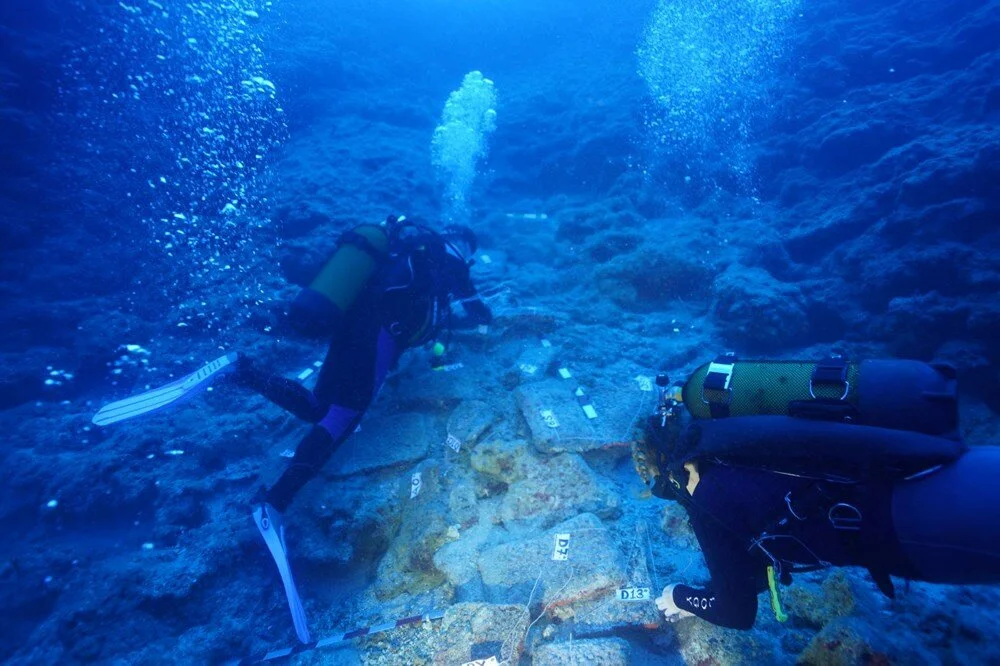
Öniz, indicating that the primary cargo of the ship was copper ingots, stated:
“Similar copper ingots are displayed in one piece at the New York Metropolitan Museum and four pieces at the National Archaeological Museum in Athens. We have more than 100 copper ingots in total, including the ones we’ve previously retrieved. In this context, we can see how rich Turkey’s cultural heritage is, and when compared to the world, we find that the origins of the first histories, epics, the earliest seafaring with sailboats, and the first maritime trade all took place on our country’s shores, especially in Antalya and more specifically in the Kumluca district.”
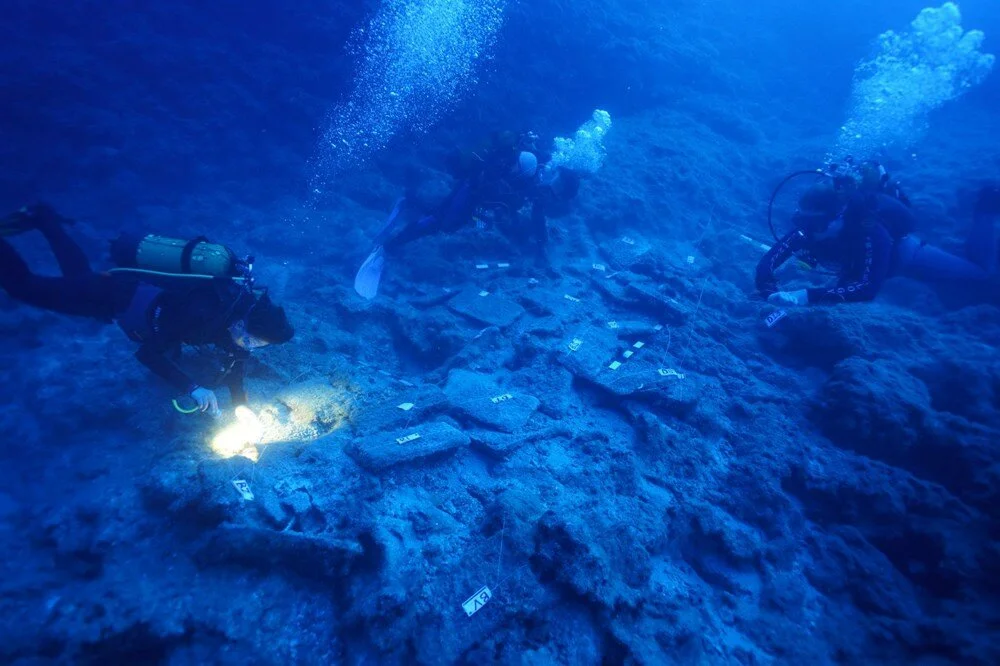
Öniz continued his statement with the following words: “We have now begun to reach the personal belongings of the sailors in the shipwreck. One of these is a type of agricultural tool called a socketed axe, which was likely made of bronze and used not only in agriculture but also in shipbuilding. We had uncovered a similar item during the excavation two years ago. The most significant findings we obtained in this year’s excavations are ceramic artifacts, particularly a small amphora. This amphora and the socketed axe indicate the 16th century BCE to us.”
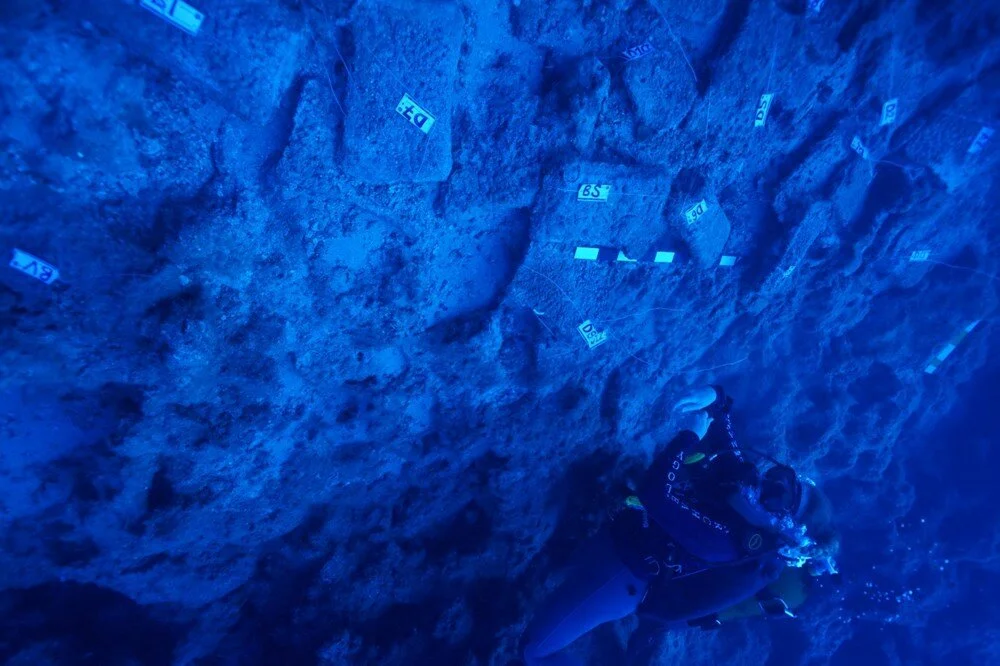
This indicates that the archaeological discoveries at the shipwreck are shedding light on ancient history and maritime practices from around 1600 BC.


